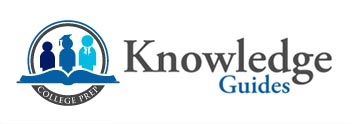10th Grade Year: Take the PSAT during the Fall - Non-Honors Students
Most school counselors will urge their Advanced Placement (AP) and honors-track students to take the PSAT their 10th grade year. However, many schools do not encourage non-honors students to take the PSAT. This is unfortunate because many of these non-honors students will wind up going to college. Talk to your child’s counselor and school administrators and make sure you get your child signed up for this test. Taking this test will benefit non-honors students in several ways.
First, it gives them a diagnostic test that shows strengths and areas needing improvement. Having this knowledge in the 10th grade year will help you determine if you need to sign your child up for remedial tutoring. You may then use this as a baseline to track improvement on the next PSAT and later SATs.
Second, it will be valuable as a practice exercise in which your student will become more familiar with the PSAT and SAT. They will learn the standard test format including question types and content.
Third, they will have an additional chance to practice their test-taking skills. My experience is that students become better test takers with practice, so take advantage of every opportunity. Finally, if they do well — for example, score better than the 70th percentile or so — on the composite score, you may want to prep them for the 11th grade PSAT to try to qualify for a National Merit Award.
Honors Students
Taking the PSAT test as a 10th grader is very important for honors/AP students. It will indicate if they have a decent chance at qualifying for a National Merit Award as a junior. Sophomores who score above 1300 may be able to score high enough as juniors to qualify.
Also, as with non-honors students, taking this test will give the student a diagnostic test that will indicate strengths and weakness. This will be valuable in determining how to set up an SAT program and in providing a baseline to which to compare the next PSAT and subsequent SATs.
Test familiarity increases with each testing experience. All 10th graders who plan to attend college should consider taking the Pre-ACT test as well. The Pre-ACT test is made by the same people that make the ACT. It tests the same skills that the ACT tests and will give you a score that would indicate how you would do on the ACT. The purpose of the Pre-ACT is to provide the student with practice and a diagnostic tool.
Adapted from The Parent's Guide to the SAT and ACT, by James Pipkin

